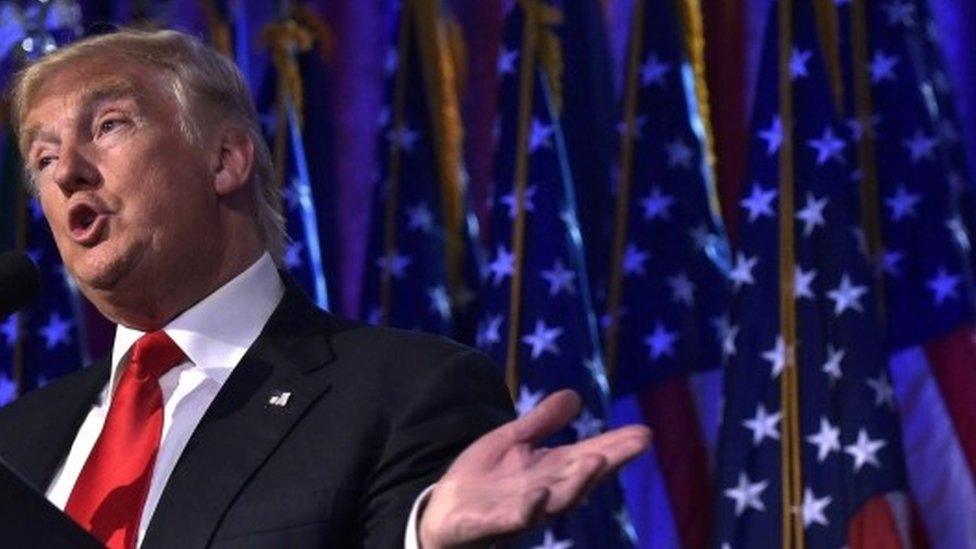Trump presidency: Canadians ready to welcome troubled Yanks
- Published
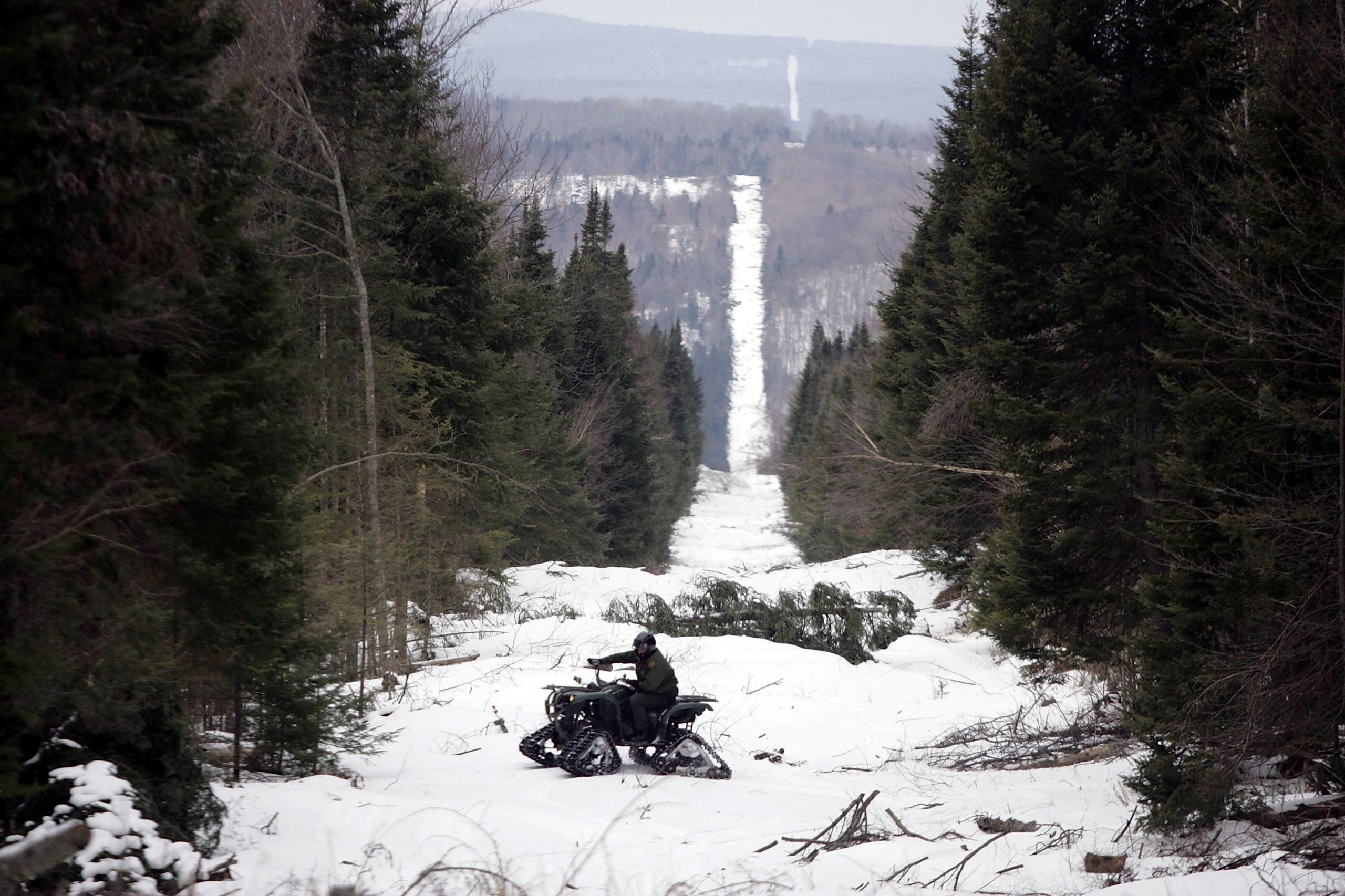
Canada and the US share the longest international border between two countries
At almost 9,000 km long, the Canadian-American border has become the fault line for Trump anxiety.
While Donald Trump has spoken about building a wall between the US and Mexico to keep immigrants out, it is Americans who may be trying to flee.
During this election's vicious campaign cycle, the idea of Americans heading to Canada became a political statement.
Celebrities like Snoop Dogg, Bryan Cranston, and Lena Dunham have threatened to move north of the border to escape a Trump presidency. When that possibility edged closer to a reality late Tuesday night, the Canadian government's Citizenship and Immigration website crashed due to what officials called "a significant increase in the volume of traffic."
Statistics provided by the government indicated over 200,000 people were trying to access the site at 11 pm when it crashed. American IP addresses accounted for some 50% of the traffic, instead of the usual 9% to 10%.
Still, few of these contemplating fleeing have actually expanded on why they want to come to the country besides the fact Mr Trump will not be head of state and that they see the country as a friendly, progressive refuge.
And if shell-shocked Americans are seeking company to pair with their misery, Canada could be a haven.
At Niagara Falls, debate about Trump
Mr Trump's election victory has left many Canadians incredulous.
"He has no political experience, he's a business man, a reality-TV star and you blink and he's the American president?" said a shocked Robert McNair, from Cambridge, Ontario about 150 km (93 miles) from Buffalo, New York.
Paul Deskin, an American tourist from Connecticut, couldn't agree more.
"I just feel like my heart's been ripped out, the country I love votes for someone with no integrity," he said. "I hope I'm wrong, and I will fight to make our country a better country, and I truly hope that Trump finds the right way to lead."
Both men were visiting Niagara Falls, Ontario, a border city and tourist hub that shares both the majestic falls and a border with New York State.
Here, and elsewhere in Canada, these cross-cultural exchanges are nothing rare.
Every day, more than 300,000 people travel across the 8, 891 km (5,525 miles) border, the longest shared border in the world.
Many people have family in both countries and, before the 9/11 terror attacks led to more security measures, Canadians and Americans along the border often crossed it casually with little or no formal ID.
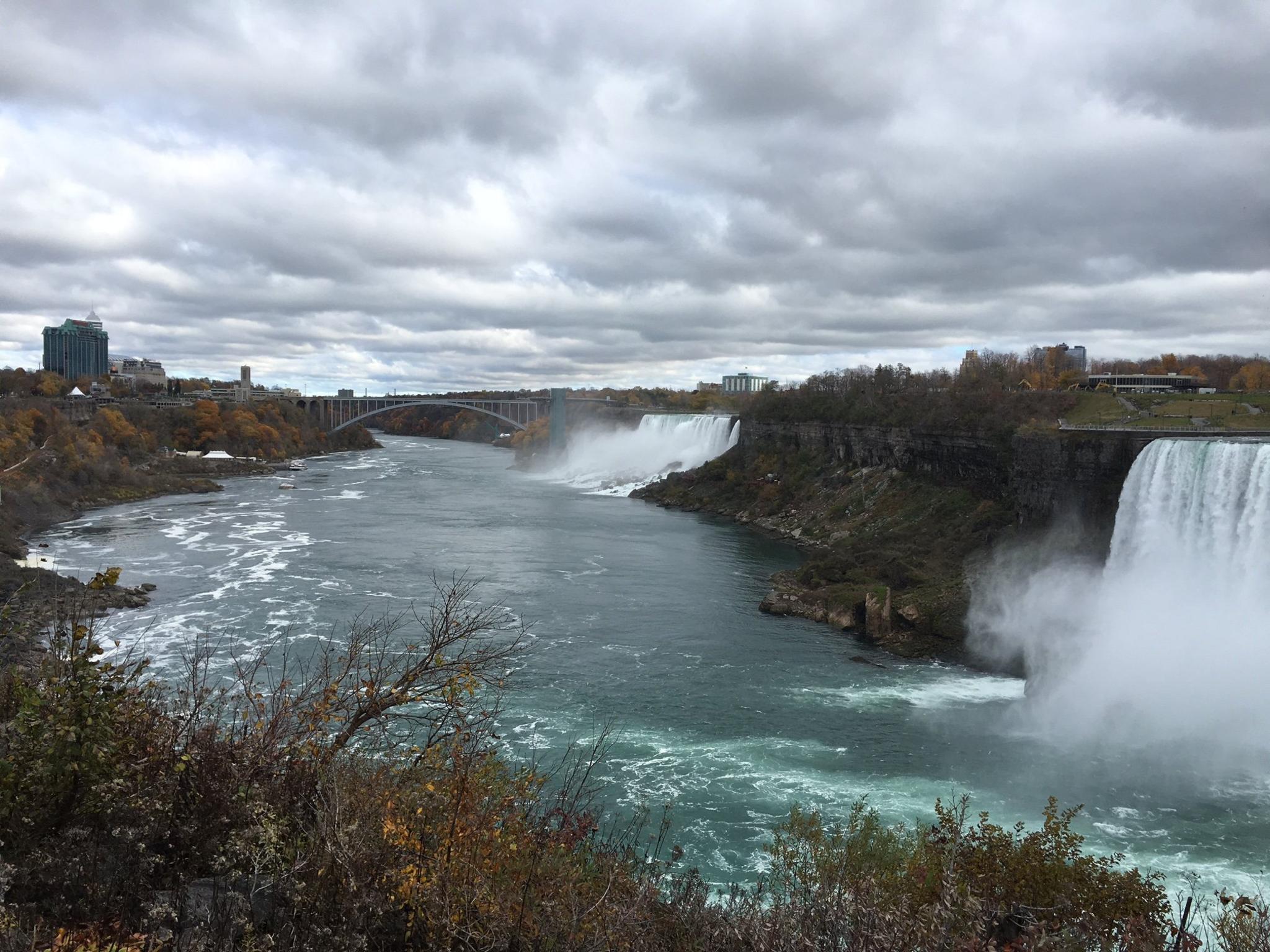
There are 119 border crossings between the US and Canada, including the Rainbow Bridge spanning the Niagara River gorge
Niagara Falls Mayor Jim Diodati says the community would be happy to welcome fleeing Americans on a more permanent basis.
"We'd roll out the red carpet. But don't believe there's going to be a mass exodus," he said. "The American spirit is strong and those were emotional statements."
The mayor thinks that once everything has settled down in the US, things will not have changed as much as people think they will.
"The way I see it, things are never as bad as they seem and they are never as good as they seem," he said.
Priyanka Varkay, who was visiting from Halifax, Nova Scotia, said an influx of southern neighbours this could be positive for Canada but worries it would strain relations Americans moved in large numbers.
"Trudeau seems to be very diplomatic, he'll find a way around it," she said.
Others are not so sure diplomacy is the best way to deal with Mr Trump.
"If he doesn't follow the rules, we'll have to stand up for ourselves," said Toronto resident Irene Landry.
She has American neighbours who moved during the George W Bush administration. In 2006, immigration from the US reached a 30-year high, according to government statistics.
"They certainly won't go back and live under Donald Trump," she said.
- Published9 November 2016
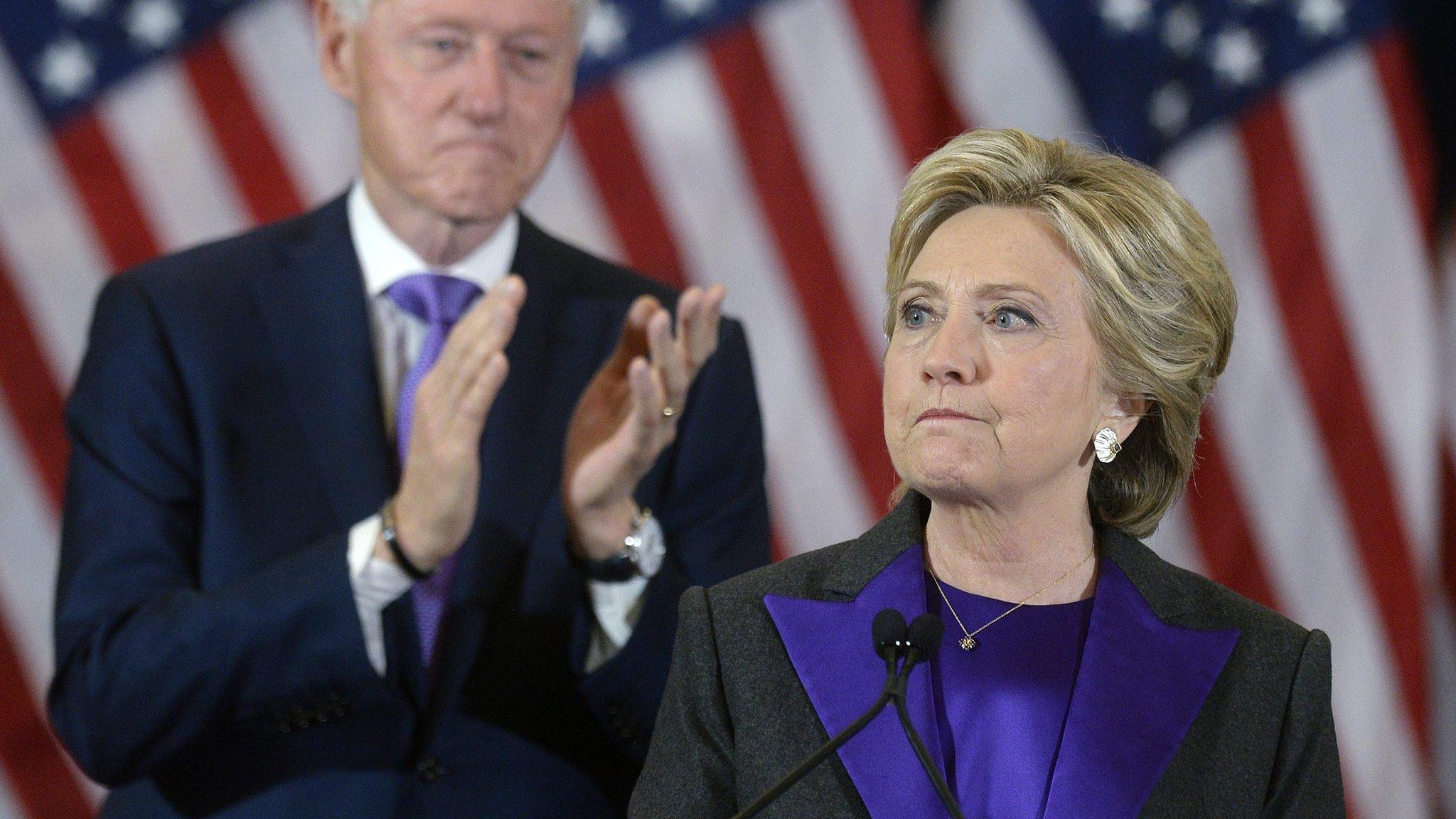
- Published9 November 2016
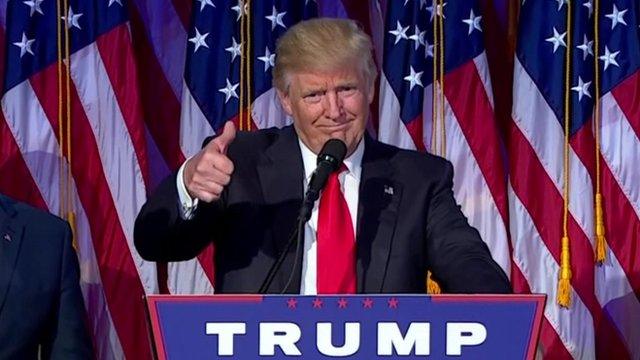
- Published9 November 2016
